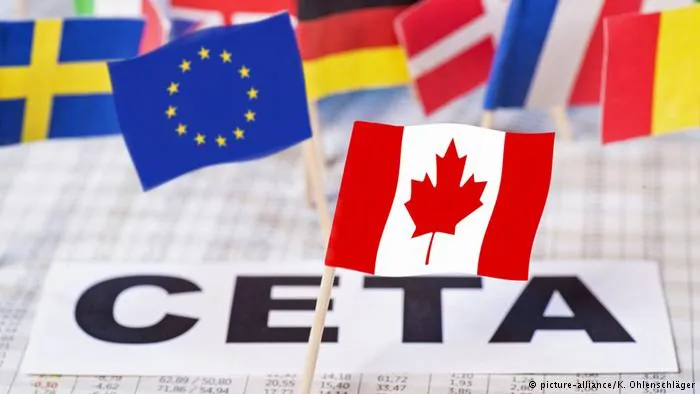- Posted on
- • Business
CETA and other FTAs are also available…
- Author
-
-

- User
- aydin
- Posts by this author
- Posts by this author
-

What is most interesting about the press coverage of the apparent collapse of the Free Trade Agreement between the EU and Canada is the focus on the implications of the collapse, rather than the cause.
Of course, these discussions happen largely behind closed doors (a necessary evil, which doesn’t help matters politically, allowing anti-globalisation activists across the political spectrum to claim an establishment stitch up). This means detail is difficult to come by, however one recurring theme (whether for CETA or the infamous TTIP between the US and EU) is the question of investor protection.
I confess, this seemed to me to be a perplexing reason for free trade discussions to collapse (or in the specific case of CETA, for the Walloons to vote against ratifying it under the Belgian federal structure).
Therefore, I took a moment to look at the specifics behind the investor protection clauses, which opponents are upset may allow foreign companies to sue EU governments who legislate in ways that diminish their profitability or destroy value in the investments made. In principle, the headline complaint sounds fair, as it is not as far as I know possible, let alone commonplace for a Belgian company to be able to sue their own government if they introduce new environmental or medicines legislation — so why should a Canadian firm be able to do so to the EU as a bloc.
Firstly, contrary to the view that these issues are discussed largely behind closed doors, the key contentious areas are well published, explained, and readily available to any who seek to understand the negotiating goals and intention of all parties.
Secondly, they have actually published the full text on investor protection (in particular, worth reading Section D as it contains the relevant clauses).
What is baffling is that the text appears to me uncontentious, in that emergency breaks are available for urgent legislation for health or environmental reasons, and the commitments are merely to engage constructively when working on technical standards and laws. In addition, the clauses on compensation for losses and expropriation looks eminently fair and sensible (e.g. defines rules as having to be equivalent to domestic and foreign firms).
Opposition to CETA seems based on a misreading of the proposed agreement and anti-globalisation dogma being able to take precedence over what should be lawmakers’ primary goal in any nation state.
This notwithstanding, given that there is no explicit protection within nation states for companies who have invested and are compromised by future legislation (at voter whim, essentially), perhaps the pragmatic solution is to drop any such options, and leave market forces to operate — should Canada or the EU act in unfriendly or unconstructive ways in the future, it would defacto provide the same brake (albeit retrospectively) — and the risk of halting FDI or other investments would act as a natural protection against governments allowing populist instincts to destroy value*.
*It is probably slightly crass but worth saying that it is probably slightly more difficult to claim this in the aftermath of the Brexit vote…